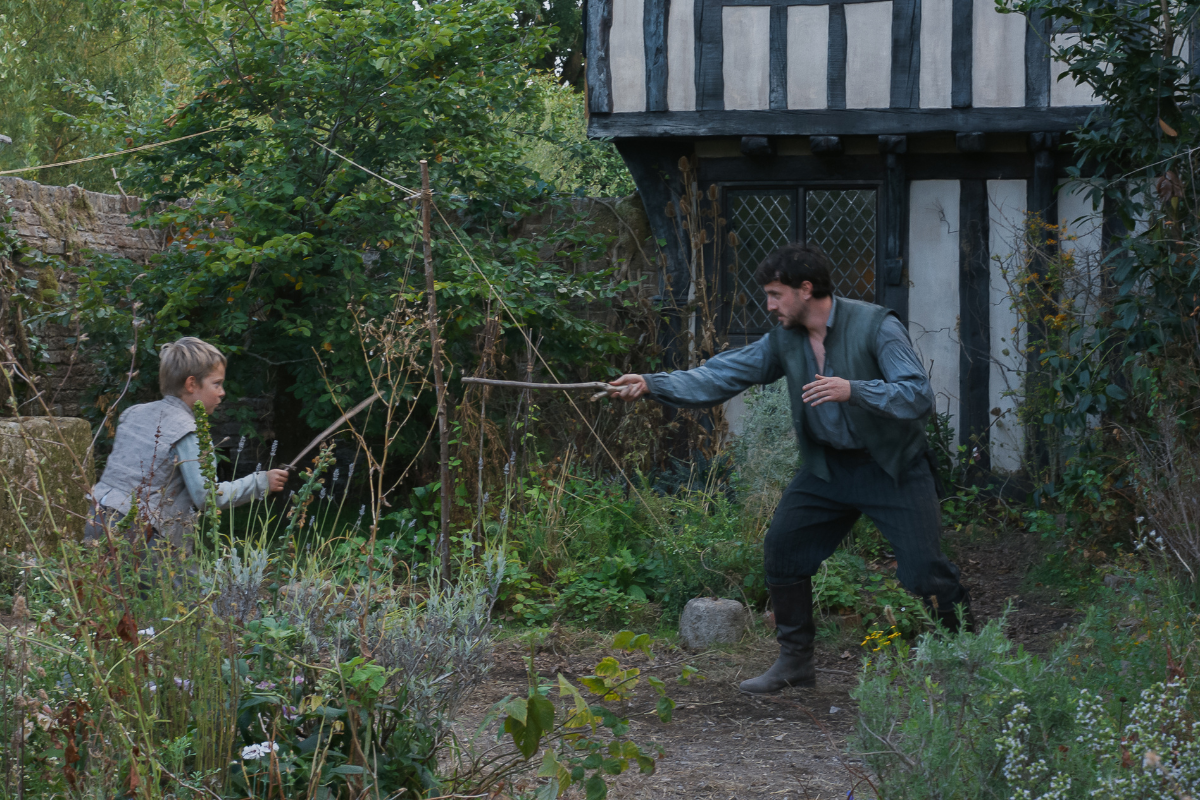Who Needs Bad Guys When You Have Climate Villains?
Climate villains who can bring a fresh sense of 21st-century treachery to your screenplays.
In my 20’s I consumed a not-so-small amount of “New Age” and self-help books. Though oft-maligned and roundly ridiculed, these tomes eased the underlying thrum of existential dread particular to the coming-of-age years. It was in one of these books (all details of which escape me) that I came across an interesting tidbit. The author had pointed out how the sun and moon appear the same size and distance from earth, despite the former being both 400 times farther away and 400 times larger. That humans ended up on a planet with these seemingly equivalent light and dark companions was, to the author, evidence that our purpose here was to experience the double-sided coin of good and evil.
While chatting about climate screenwriting with script consultant Pilar Alessandra on her On the Page podcast recently, she issued me a friendly challenge. “Screenwriters need new villains to draw from,” Pilar said. “I would love a list.” Between episodes of The Golden Bachelor - a show that confers its own form of existential contemplation – I got to thinking about that double-sided coin. Sorting out who is good and who is “evil” depends on context, motivation, and point of view. Screenwriters, fortunately, know all about these things.
What Is Climate Screenwriting?
In climate storytelling circles we tend to steer away from the lone hero trope since it represents toxic individuality and saviorism (often “white saviorism”). At the same time, we rally against “Big Oil” and “Big Agriculture” but remain in the dark about who the individuals are behind the corporate camouflage. Climate screenwriting provides us the opportunity to create compelling, fleshed out characters who stand as representatives of these murky collectives. Using them in our stories can open up new possibilities for conflict and, hopefully, resolution.
With that in mind, I offer up some climate villains for your consideration…
THE EXEC
The fossil fuel CEO or stakeholder is the ultimate climate bad guy. He has one goal and one goal only: Profit. His drive to acquire money supersedes all else, including the health and well-being of planet Earth’s occupants. Whether he’s making money from war, lying to Congress, or brushing aside human rights violations, his ambition and drive is unmatched. Of course, his family and friends know him as a warm-hearted philanthropist who plays a mean round of golf. Tomayto, tomahto!
THE POLITICIAN
The politician is the public-facing comrade of the fossil fuel exec. They use phrases like “pro-business” and “job growth” while taking sizeable donations from their buddies. In exchange, they undermine environmental regulations, stymie efforts that support sustainable energy, and feed misinformation to voters. To them, politics is a game of chess, and the goal is to win, no matter who loses along the way. Of course, they too can be philanthropic. Who do you think supplies Santa with lumps of coal at Christmas? It’s a tax write-off, sure, but still.
THE LOBBYIST
This climate villain is a smarmy middleman who does the bidding of the fossil fuel industry. They keep a low public profile and act as a “friendly” face of Big Business as they schmooze with politicians behind the scenes. Their goal is to stop any policies that would be bad for the company. Lobbyist hobbies include sowing doubt about climate science, joining anti-climate shadow groups, undermining climate-friendly initiatives, and woodworking. Talk about well-rounded!
Your Screenplay Has a Carbon Footprint - Here’s How You Can Lower It
THE SPIN DOCTOR
Perhaps the most dangerous climate villain is the one that crafts the propaganda. The spin doctor runs a PR company in the city with killer décor and employs the services of writers and artists. (Insert my broken heart here.) She’s an expert in greenwashing and putting a pretty face on climate denial. With her help, fossil fuel companies can gaslight and confuse people about climate issues for decades to come. When it comes to perfect soulless villains, she’s a 10.
THE SABOTEUR
The saboteur is a chameleon and shapeshifter. Hired by the oil or gas company, they infiltrate environmental groups by posing as a fellow activist. They charm their way into people’s hearts then get them to give up their secrets. The saboteur may be a lone wolf, but they ensure legions of fossil fuel execs are always one step ahead. Skills include breaking into offices, stealing documents, having sex with as many protestors as possible - for work, of course – then disappearing into the night.
THE PETRO-MALE
The petro-male lacks the power and influence of all the above, so let’s consider him VillainLite™. On weekends he’s an attention-seeking “coal roller” who gets off on jerry rigging his truck to spew clouds of black soot at people driving electric vehicles. During the week he’s the trucker driving a semi in a convoy to protest climate action. In the wild, this petro-male can be found boycotting LGBTQ-friendly beer companies and fat-shaming women on his podcast.
Other dastardly climate villains include attorneys who battle children in court, mobsters who mishandle toxic chemicals, billionaire financiers of anti-climate think tanks, and tech bros who’d rather block out the sun than phase out fossil fuels. The list goes on! Just remember, for every villain there’s at least one hero. Like the sun and the moon, these vastly different but strangely similar entities exist in tenuous harmony with one another. It’s up to us to make sure the audience knows who’s who.
Who’s your favorite climate villain? Tell us in the comments or on social media with the #ClimateScreenwriting tag.







